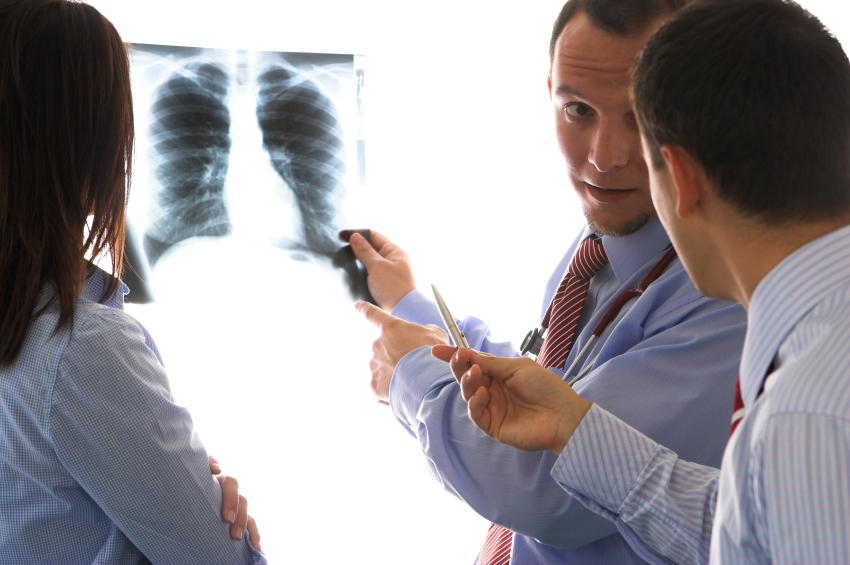Bronchitis is a respiratory disease characterized by inflammation of bronchi (airways that carry air to the lungs).
There are two types of bronchitis:
Acute Bronchitis – is a disease of the cold season, usually triggered by viral infections (influenza virus, rhinoviruses, adenoviruses, respiratory, etc.. which can be aggravated by bacterial superinfection (streptococci, pneumococci, Haemophilus influenzae, etc..). Acute Bronchitis begins with a burning sensation in the chest, followed by a painful dry cough. Subsequently, the cough becomes expectorant, with transparent or white boy sputum disposal. If bronchitis worsens, sputum may become yellow-green. It may manifest symptoms of flu or cold: headache, neck, runny nose and fever. Breathing becomes wheezing and may have a feeling of breathlessness.
Chronic bronchitis – is a disorder of the airways that last, characterized by the constant presence of reflex cough and expectoration for a long time (several weeks or months). The most common cause of the disease is the excessive smoking or frequent inhaling of toxic substances. These substances cause lung damage and narrowing of the bronchi. These conditions can lead to pulmonary emphysema with chronic lung degradation. The disease lowers body immunity and predisposes to viral or bacterial infections.
Bronchitis treatment includes drugs for treating cough, relieve pain, fever, and antibiotics if a bacterial infection is manifested. Antitussives are taken when the cough is dry and troublesome. These drugs are taken only on medical advice.
- Expectorants are drugs that facilitate expectoration, streamlines and stimulates elimination mechanism of mucous-purulent secretions.
- Analgesics and Antipyretics are used to relieve pain and reduce fever.
- Antibiotics are given when the doctor finds that a bacterial infection has indeed occurred manifested by a general state of degradation, with high fever, purulent and plentiful sputum. After performing an antibiogram, the doctor determines which antibiotic is most appropriate.
For people who present strong irritating cough (chronic bronchitis when the bronchi are already degraded), the doctor may recommend corticosteroid therapy, by the inhaled route.
Bronchodilators, oral or inhaled, can be users for the treatment of acute, aggravated bronchitis, and for the chronic type, in order to decrease wheezing and coughing.
In improving symptoms of bronchitis, drug therapy can be completed by: drinking warm liquids (Not hot!), 2-3 liters per day (tea, stewed fruits, soups), enough sleep and rest, avoid coffee and alcohol consumption (favors dehydration), cessation of smoking or exposure to tobacco smoke; humidification of atmosphere (heat and the humidity dilutes the mucus and make it easier to remove) and inhalations of chamomile or salt.
Avoiding complications of acute or chronic bronchitis may be made by the administration of influenza vaccine (yearly) and pneumococcal (every six years). This method of prevention is recommended to be applied especially for children, the elderly, or for those whose health condition is already affected: diabetes, heart disease, those who already have respiratory diseases, people with low immunity (autoimmune diseases, AIDS), etc..
In conclusion, we could say that the occurrence of bronchitis could be prevented by:
- Avoid cigarette smoke or irritating substances;
- Avoid contact with people presenting respiratory infections;
- Wash your hands often during the cold season influenza epidemic;
- Vaccination against influenza and Pneumococcal polysaccharide.


